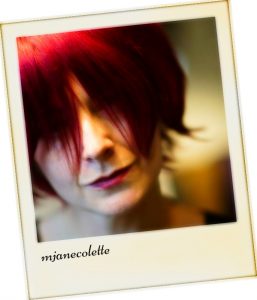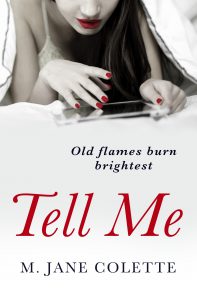Why It’s Important To Write -and Read- Romance and Erotica In An Age Of Plentiful Porn
 He’s one of my oldest friends, and so, when the words come out of his mouth, I first think I’ve misheard him.
He’s one of my oldest friends, and so, when the words come out of his mouth, I first think I’ve misheard him.
“Excuse me?” I say. And he says it again, and I ask him to repeat it, again. No, that’s what he actually said.
“How do your parents feel about your new career as a pornographer?” he says to me. For the third time.
I stare at him, half in anger, half in wonder, all in shock.
“Pornographer?” I repeat. Mouth the word. Try it on for size—pull it on like a new dress, coat, in a badly lit fitting room with a twisted mirror. I don’t like it. My reaction must be reflected on my face, because he backpedals.
“I mean it as a compliment,” he assures me, tapping the cover of my first novel, on the table between us—which definitely does not look like porn. “But you know. What you wrote is too dirty to be literature.”
“So… automatically, it’s porn?” I ask. And now, there is little wonder left in me. But a lot of anger, and it’s rising.
“Well, what do you call it?”
“Romance,” I say. “Erotica,” I add, because, well, it is a gloriously filthy-dirty book.
“Same thing,” he says. “Porn for women too chicken to look at real porn.”
And this the point at which I totally and completely lose it and tear him to shreds.
Because romance and erotica are not porn. And they’re most definitely not porn for women too chicken to look at real porn. It’s not a question of semantics—my erotica being your porn or vice versa. It’s a huge, important question of purpose, agency and audience—why the work is created, and, more importantly, who the work is created by and for.
A personal caveat: I do intermittently consume porn, in a variety of media. Photographs, videos, words. And the chief reason I write erotic romance and erotica is because pornography rarely represents my desires and sates my appetites.
But erotic romance does.
There is a variety of ways that we can define porn and romance. This is the simplest: porn is about sex, and romance is about love. Slightly more complicated: porn is about “getting off”—about the “cum shot”—while romance, be it sweet or erotic, is about desire, arousal, anticipation… as much, if not more so, than the climax. Romance is about the building and testing of the relationship—good romance, the best romance, is, at its core, about the examination of what makes love and relationships work.
Erotic romance is, very specifically, about how sex and desire move and evolve a relationship. The “cum shot,” if any—if the writer does her work properly—is almost incidental—the by-product of everything else.
That’s why I see reading and writing romance and woman-centered erotica as a powerful and radical act in this era of plentiful, freely available pornography. What romance writers create is an antidote to what pornographers create—on almost every level. Created primarily by women for women (although, some 20 per cent of all romance readers are men, did you know?), romance puts the woman and her desires, love and relationship-creation, at the center of the story. Even in the steamiest, skankiest romance, the sex is the servant of the relationship.
That’s what makes it so hot.
 Romance—the best romance—empowers women.
Romance—the best romance—empowers women.
“But…” he opens his mouth. And he says—the usual things people say when they criticize romance. Trashy covers. Thin plot lines. Unbelievable fantasies. He adds, “Emotionally exploitative.”
“I’m so glad you brought up exploitation,” I say.
Because if the simplest definition of porn and romance is that one is about sex and the other about love, the most important difference between the two is this: when I write romance, when she writes erotica—when you write erotic romance—no one gets exploited.
I am not underpaying a young woman who does not quite understand what it is she is getting into to strip naked in front of a camera and act out someone else’s fantasies. I am taking a part of myself—freely, happily—and getting her to play with your mind—which joins in the process freely, consensually—and at the end of the experience, I am sated and fulfilled—because I have created something hot and beautiful—and you are sated and fulfilled—because you have devoured a fantasy that you’ve actively co-created in your mind while you read it.
If there is a more powerful antidote to pornography, I haven’t found it.
So. Read romance. Without guilt. And if you write romance—know that you’re doing more than just indulging your and your readers’ fantasies.
You’re changing the world. One kiss, one steamy sex scene—one happily ever after (or for now) ending at a time.
*
—
Jane Colette writes tragedy for people who like to laugh, comedy for the melancholy, and erotica for women and men who like their fantasies real. She believes rules and hearts were made to be broken; ditto the constraints of genres. She’s the author of two erotic romances, Tell Me (HarperCollins 2015) and (the) Consequences (of Defensive Adultery) (in press, 2017), and the non-fiction essay collection Cunt versus Pussy: an incomplete confession in rough draft (coming January 2017), which examines the power of words, the limitations of genre and the business of writing.
Member of the Romance Writers Association of America, as well as its Calgary and Passionate Ink chapters, the Writers’ Guild of Alberta, and brand new member of the Board of Directors of When Words Collide, Calgary’s iconic writer-and-reader conference.
Find out more about her on her website https://mjanecolette.com/
Connect with her on Twitter @mjanecolette
facebook.com/mjane.colette & www.facebook.com/mjanecolette2
Category: Contemporary Women Writers, On Writing































Hear hear!
People like that frustrate me; it seems that women’s writing is to be devalued, and work that deals with women’s lives is unimportant.
I’m looking forward to reading your book. Especially as it is erotica 🙂